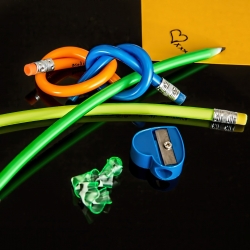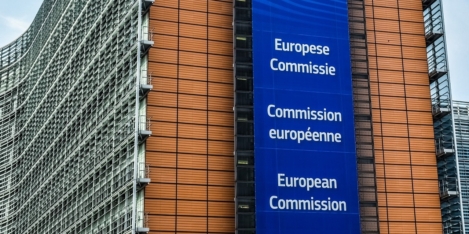To provide the best experiences, we use technologies like cookies to store and/or access device information. Consenting to these technologies will allow us to process data such as browsing behaviour or unique IDs on this site. Not consenting or withdrawing consent, may adversely affect certain features and functions.
The technical storage or access is strictly necessary for the legitimate purpose of enabling the use of a specific service explicitly requested by the subscriber or user, or for the sole purpose of carrying out the transmission of a communication over an electronic communications network.
The technical storage or access is necessary for the legitimate purpose of storing preferences that are not requested by the subscriber or user.
The technical storage or access that is used exclusively for statistical purposes.
The technical storage or access that is used exclusively for anonymous statistical purposes. Without a subpoena, voluntary compliance on the part of your Internet Service Provider, or additional records from a third party, information stored or retrieved for this purpose alone cannot usually be used to identify you.
The technical storage or access is required to create user profiles to send advertising, or to track the user on a website or across several websites for similar marketing purposes.
 A problem shared may be a problem halved but, according to a new report, many UK office workers can’t discuss work with their nearest and dearest without them switching off. The survey by CWJobs claims couples are more likely to know the PIN to their partner’s phone (40 percent) or who their favourite band is (38 percent) than understand what they do for a living (30 percent). Three quarters of the workers surveyed said their spouse could not explain their job to another person. (more…)
A problem shared may be a problem halved but, according to a new report, many UK office workers can’t discuss work with their nearest and dearest without them switching off. The survey by CWJobs claims couples are more likely to know the PIN to their partner’s phone (40 percent) or who their favourite band is (38 percent) than understand what they do for a living (30 percent). Three quarters of the workers surveyed said their spouse could not explain their job to another person. (more…)





 One in three US workers have told researchers nothing would stop them from taking advantage of flexible working options, despite the potential damage to their career. According to a
One in three US workers have told researchers nothing would stop them from taking advantage of flexible working options, despite the potential damage to their career. According to a 
 The European Commission has put forward a strategy to promote the development of AI and robotics while putting people first and defending European values and rights. The strategy acknowledges that AI can open up new opportunities for businesses and bring solutions to challenges such as climate change. However, it aims to address the social, legal and ethical impact of new technology.
The European Commission has put forward a strategy to promote the development of AI and robotics while putting people first and defending European values and rights. The strategy acknowledges that AI can open up new opportunities for businesses and bring solutions to challenges such as climate change. However, it aims to address the social, legal and ethical impact of new technology. 
 Insider data breaches are a major concern for 97 percent of IT leaders, according to new research. About three quarters believe that employees have put data at risk in the past 12 months accidentally (78 percent) or intentionally (75 percent). When asked about the implications of these breaches, more than two in five said financial damage would be the area of greatest impact.
Insider data breaches are a major concern for 97 percent of IT leaders, according to new research. About three quarters believe that employees have put data at risk in the past 12 months accidentally (78 percent) or intentionally (75 percent). When asked about the implications of these breaches, more than two in five said financial damage would be the area of greatest impact. 
 New research has been published aimed at understanding trends, practices and priority areas for improving employees’ experience and creating better places to work. The report,
New research has been published aimed at understanding trends, practices and priority areas for improving employees’ experience and creating better places to work. The report, 






 Communicating a business’s “employee value proposition” or EPV – the package of rewards that it offers in return for the person’s performance at work – is having an increasingly positive impact on employee engagement, retention and recruitment, research has claimed.
Communicating a business’s “employee value proposition” or EPV – the package of rewards that it offers in return for the person’s performance at work – is having an increasingly positive impact on employee engagement, retention and recruitment, research has claimed. 


 As AI continues to disrupt the world of work, a new report says upskilling and reskilling will be crucial in developing workers’ competencies to complement technological innovation. Yet according to the
As AI continues to disrupt the world of work, a new report says upskilling and reskilling will be crucial in developing workers’ competencies to complement technological innovation. Yet according to the 







February 18, 2020
Curiosity killed the stat: why we should avoid becoming slaves to data
by Anthony Tasgal • Comment, Technology, Workplace design
Hands up. How many of you spend much/most of your time peddling data, charts and other fact-based information? And how much time do you spend challenging yourself, learning new ideas, indulging your curiosity and feeling a sense of surprise and fulfilment? And finally how much of the inquisitive, itchy child do you feel your job appeals to rather than the “only- 30-more-years-of-wage-slavery-if-I’m-lucky” mindset?
(more…)